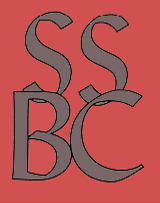
Seattle Small Books Company
jim_brantingham@msn.comBook Stores
You can purchase books at these bookstores.
Open
Books
A Poem Emporium
Vashon Bookstore
City Lights Booksellers & Publishers
Click here for additional contact information for these book stores.
Seattle Small Books Company
On Ancient Paths
In the Tower
Title: Yeats lived in an Irish tower, as does Stephen Dedalus along with his towermates.
l. 2: Had in mind “The Inferno,” opening lines.
l. 6: “The Wasteland,” l. 22.
ll. 8-9: Teresa of Avila, “The Interior Castle.”
ll. 17, 31, & 52: From “The Odyssey,” told three times: Ch. II, by Antinoos; Ch. XVIV, by Penelope; Ch. XXIV, by Amphimedon.
l. 18: And following; had in mind the early Gnostic religion/philosophy with comparison to the new gnostics, Eliot and Pound.
l. 20: and following; Ch. XI, Odyssey.
l. 24: and following; l.99, “The Wasteland.” Also from Ovid, “The Metamorphosis.”
l. 28: W.B. Yeats and John Fowles.
l. 29: The beat poets, Ginsberg, Ferlinghetti, etc.
l. 33: last line of “The Dry Salvages.”
l. 39: and following; “Paradiso,” Canto XXXIII.
l. 42: last line of “Little Gidding.”
ll. 44-45: from “Foxe’s Acts and Monuments,” that part entitled “The Behavior of Doctor Ridley and Maister Latimer at the Time of Their Death.” Ridley, who at the stake could not burn due to the “evil nature of the fire unto him,” cried out to his executioners: “Let the fire come unto me; I cannot burn.” The chapter ends: “Well, dead they are, and the reward of this world they have already.” For rhetorical reasons, I have changed the punctuation to make “well” an adverb modifying the predicate adjective.
l. 46: The Fire Sermon is the 3rd part of Eliot’s “The Wasteland.”
l. 48: Pound also did some furniture making.
l. 51: Daedalus, famous for his craftsmanship, built the labyrinth that held the Minotaur.
l. 53: “Purgatorio,” Canto XXV
Icarus, The Descent
l. 1: “Paradise Lost,” Book II, l. 1055; standard Gothic image.
l. 2: Goethe’s “Faust;” Book I, ll. 1395 ff.
l.6: Mircea Eliade and Jung.
ll. 7, 8: First part of the title of Proust’s “A la Recherche du Temps Perdu,” which is the French translation of Shakespeare’s line in the 30th sonnet which appears partly on line 8.
l. 10: Aiding memory
l. 12: Dactyl is a finger; count the joints from the bottom and you get long, short, short, dactylly.
l. 13: I don’t remember exactly where I read this, but I think it was a poem of Wordsworth’s about the frantic sealing of documents in a jug before the enemy arrived; an ancient custom; with reference, also, to the Nag Hammadi Library where many Gnostic documents were discovered.
l. 14: E.A. Poe.
l. 15: part of the Romantic Tradition.
l. 16: “Job,” “Moby Dick,” Aeneas, in another way and others; what I have called the “ego solus” tradition, especially with regard to the Romantic literature.